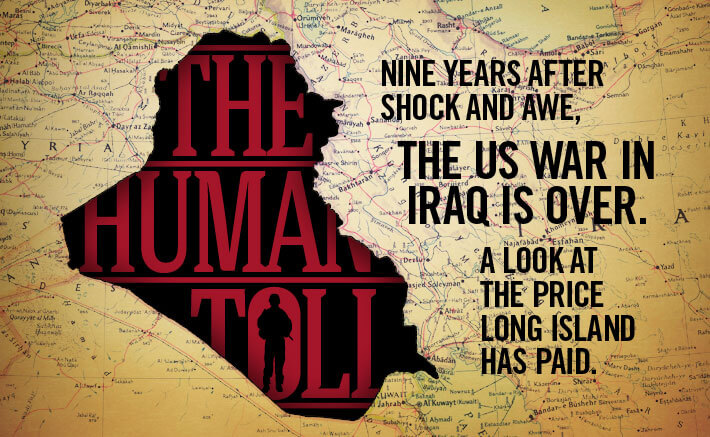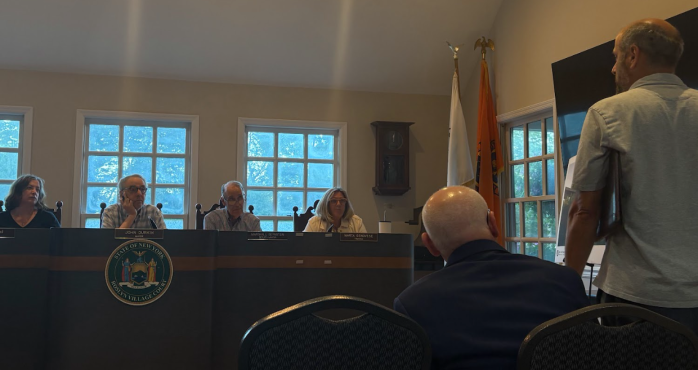BOMBS OVER BAGHDAD
“After a year in Iraq, the worst six months in my life were the six months after I came home,” says Andy Roberts, director of the Rosen Family Wellness Center at North Shore-Long Island Jewish Health System in Manhasset. “Without a doubt. I’ve never been that miserable.”
For almost a year he’s been running the Rosen Center, which helps provide free counseling to military and law enforcement personnel and their families living on LI and in the metropolitan region. Before coming to North Shore-LIJ, Roberts, now 37, was the deputy director of the New York State Division of Veterans Affairs.
In the first week of April 2003, Roberts, who’d gone to West Point, was an Army captain leading 90 American soldiers as a field artillery battery commander. Stationed at an isolated outpost about 45 minutes from his supply lines, his troops were exposed to enemy attacks but it was nothing he didn’t expect. Then, almost overnight, his mission changed. He was looking after his soldiers and running a small city in Iraq, Balad Ruz.
“I equate it to taking your local fire department and turning them into a bunch of police officers,” Roberts says. “It looks like everybody’s driving vehicles with flashing lights but it’s two totally different jobs.”
And for veterans of the Iraq operations, apparently, nation-building was far more stressful—and no less dangerous, according to John Javis, chairman of the Veterans Health Alliance of Long Island.

“I have yet to have a veteran come up to me and say, ‘I was traumatized by what happened during the invasion.’ Not one… We went in there and we did what we had to do,” Javis says, noting that Saddam Hussein’s forces were crushed within weeks.
But then came the insurgency and the long occupation. “The military trains people to basically blow stuff up…not to build nations… And so you’ve got very young people being asked to almost function as a diplomat.”
Javis adds that the burden of dealing daily with IEDs, those diabolical booby traps insurgents deployed to such lethal effect, has also had “a tremendous psychological impact” on our soldiers.
“People driving down the road today, they see a garbage bag and they think there could be a bomb inside,” Javis says.
According to a spokesman for the Northport Veterans Affairs Medical Center, 5,272 veterans of Operation Enduring Freedom, Operation Iraqi Freedom and Operation New Dawn have been seen at the VA facility since 2001. Of those, 313 veterans had a diagnosis of traumatic brain injury (TBI), and 934 were diagnosed with PTSD. Last year, 80 of these veterans had TBI and 631 had PTSD. The VA facility has a wide range of services in addition to medical screening, including vocational training and other programs.
“We have some pretty good techniques to help people with PTSD,” says Javis of the Veterans Alliance. “We don’t have that so much with traumatic brain injury because the brain literally is not functioning properly. It’s been damaged. A trained person can pick that up.”
Once diagnosed, TBI patients can be better served, he adds.
Javis says mental health providers on LI are beginning to see a troubling trend:
“A number of folks from Iraq have basically shut down and have stopped functioning. They’re living at home, they’re not going to work, they’re not going to school. They’re not participating in life.”
These vets are in full retreat, he continues, staying indoors, playing video war games and “kind of numbing themselves” with alcohol and other substances.

































